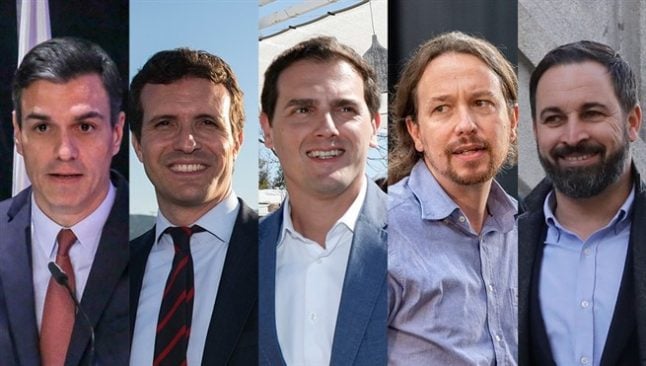The outcome of the November 10 polls will depend in large part on how voters react to the days of unrest which swept Barcelona and other Catalan cities after Spain's Supreme Court on October 14 sentenced nine Catalan separatist leaders to lengthy jail terms over a failed 2017 independence bid.
Polls suggest the Socialists are on track to win roughly the same number of seats as in the last election in April when they came out on top but fell far short of an absolute majority in parliament, while the conservative Popular Party (PP) and far-right party Vox could make significant gains.
Accused by the right of being weak against the violent protests which injured over 600 people, Sanchez has toughened his tone ahead of the official start of the election campaign period at midnight.
Speaking at a party rally in Viladecans, near Barcelona, on Wednesday evening, Sanchez likened Catalan separatists to Vox, saying one side argues “there is ony one Catalonia, the independent Catalonia” while the other says “there is only one Spain, ours”.
“The road of self-determination is a dead end,” he added as the leader of the Catalan branch of the Socialist party, Miquel Iceta, stood beside him.
Iceta condemned the violent protests, saying “it is not a right to burn rubbish bins, attack police, or burn cars or try to block access to an airport”.
'Incendiary discourse'
Pablo Iglesias, the pony-tailed leader of far-left party Podemos, accused Sanchez during an interview with a Catalan radio station on Thursday of “wanting to compete with” the PP and business-friendly Ciudadanos “by adopting an incendiary discourse about Catalonia”.
Podemos is the only major party which is open to letting Catalonia hold an independence referendum as separatists have demanded for years. All other formations argue this would go against the constitution.

The PP has called for Madrid to enact a national security law which would allow it to take control of Catalonia's regional police force, the Mossos d'Esquadra.
Ciudadanos, which was born in Catalonia to fight separatism, has called for Madrid to suspend Catalonia's regional autonomy, just as a previous PP government did in 2017 after the Catalan parliament declared independence following a banned session referendum.
But the hardest line of all has been adopted by Vox, which calls for separatist parties and associations to be banned.
In an interview published Thursday in centre-right daily newspaper El Mundo, Vox leader Santiago Abasca said it was “absolutely necessary' to arrest of the head of Catalonia's separatist regional government, Quim Torra.
He also called for the Catalan regional government's powers over education and the media to be permanently removed.
Abascal will kick off Vox's campaign late on Thursday with a rally at a Barcelona suburb.
More protests
Vox entered parliament for the first time during the last general election in April when it won 24 seats, becoming the first sizeable far-right group in the 350-seat assembly since Spain's return to democracy following the death of dictator Francisco Franco in 1975.

The party could nearly double its score in the November 10 polls, capturing 44 seats, while neither the left nor the right bloc would win enough seats for a majority on their own, according to a poll published Thursday in El Mundo.
Catalan separatists are planning more protests over the court sentences in the coming days, which will force the government to keep its focus on Catalonia, where Sanchez is scheduled to wrap up his campaign on Friday.
This scenario “tends to favour” parties on the right which “are seen as the nest defenders of the Spanish nation,” said Pablo Fernandez Vazquez, a political scientist at the University of Pittsburgh.




 Please whitelist us to continue reading.
Please whitelist us to continue reading.
Member comments